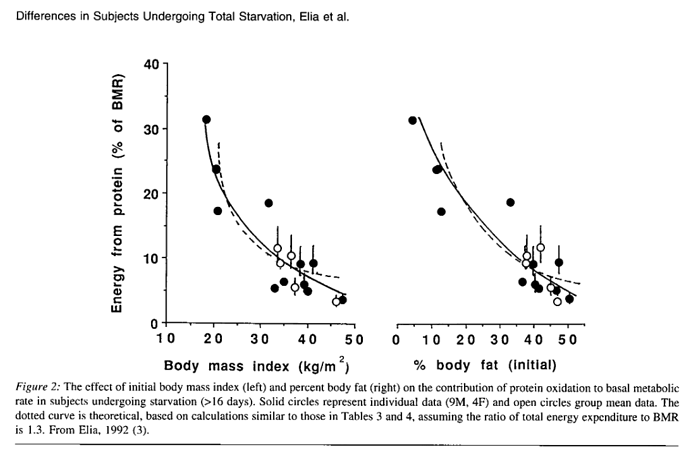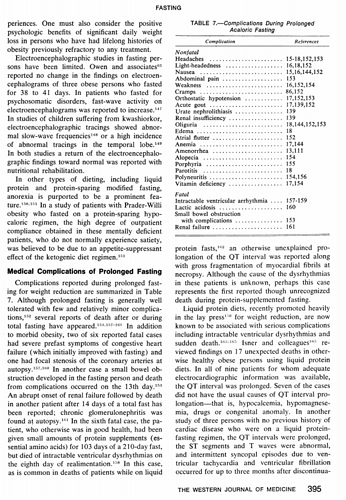Nick, it makes sense that leaner people would have to get a higher percentage of energy from non-fat sources while fasting, particularly if we subscribe to the ‘limit of fat we can access per day.’
This is puzzling to me. I’ve read that even in the case where the person has literally starved to death, the loss of heart muscle is very low. Right now I can’t find where I read this, but there was a Russian study of people who had died that way, and the loss of heart muscle averaged only 3%.
If prolonged fasting endangers the heart, that does not seem to jibe with the known cases of very long fasts, from what I’ve seen, up to good old Angus Barbieri and his 382 day fast. Toward the end of his fast, he was given potassium supplements - I assume for potential blood pressure and heart concerns, among others.





 ) - and the longer increased autophagy proceeds, it can go too far, all other things being equal, where the inner parts of the cell are affected to such a degree that the cell may die - there’s a term for it - “autophagic cell death” - so it’s a real deal.
) - and the longer increased autophagy proceeds, it can go too far, all other things being equal, where the inner parts of the cell are affected to such a degree that the cell may die - there’s a term for it - “autophagic cell death” - so it’s a real deal.